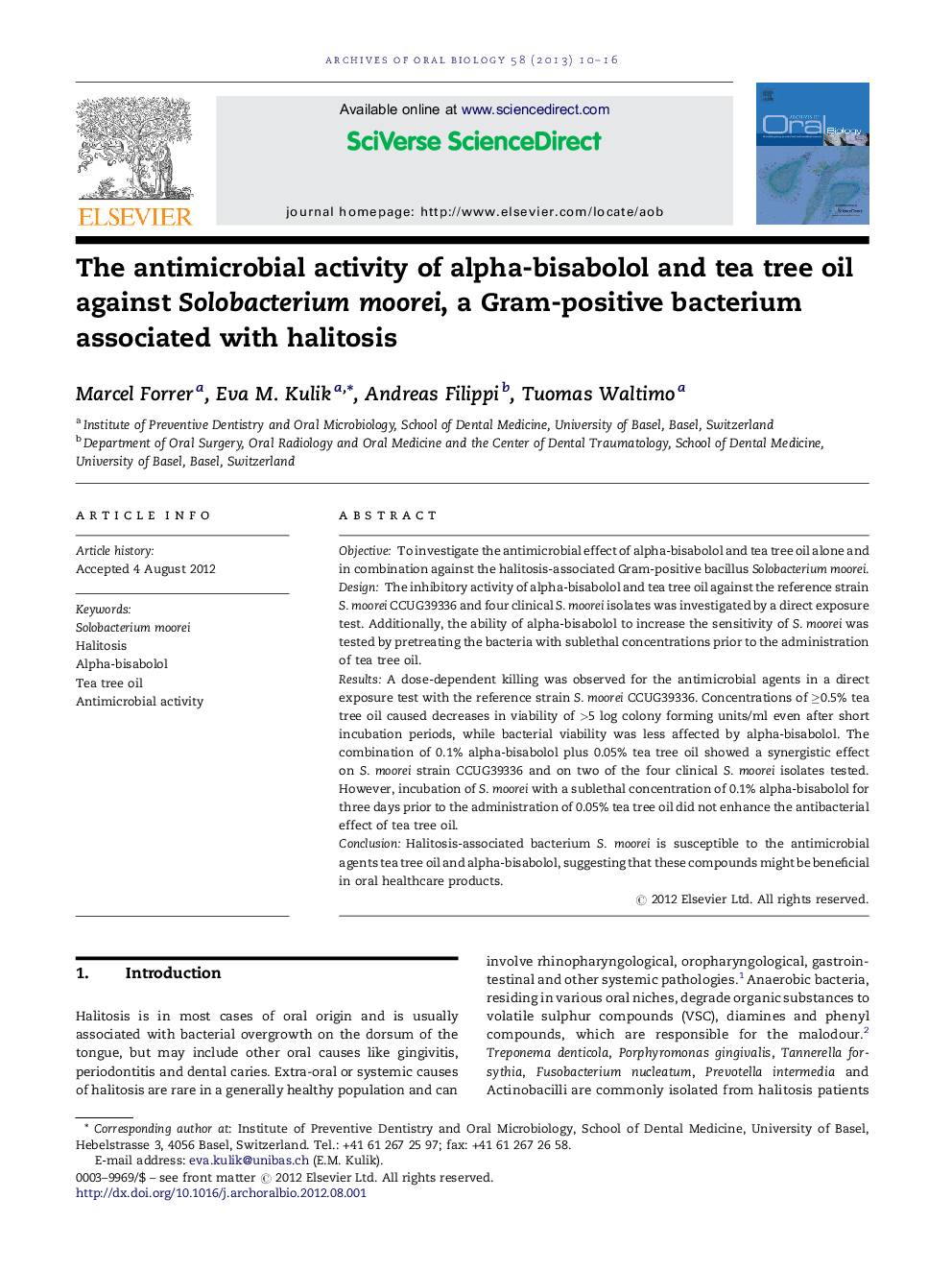| Article ID | Journal | Published Year | Pages | File Type |
|---|---|---|---|---|
| 6051091 | Archives of Oral Biology | 2013 | 7 Pages |
ObjectiveTo investigate the antimicrobial effect of alpha-bisabolol and tea tree oil alone and in combination against the halitosis-associated Gram-positive bacillus Solobacterium moorei.DesignThe inhibitory activity of alpha-bisabolol and tea tree oil against the reference strain S. moorei CCUG39336 and four clinical S. moorei isolates was investigated by a direct exposure test. Additionally, the ability of alpha-bisabolol to increase the sensitivity of S. moorei was tested by pretreating the bacteria with sublethal concentrations prior to the administration of tea tree oil.ResultsA dose-dependent killing was observed for the antimicrobial agents in a direct exposure test with the reference strain S. moorei CCUG39336. Concentrations of â¥0.5% tea tree oil caused decreases in viability of >5 log colony forming units/ml even after short incubation periods, while bacterial viability was less affected by alpha-bisabolol. The combination of 0.1% alpha-bisabolol plus 0.05% tea tree oil showed a synergistic effect on S. moorei strain CCUG39336 and on two of the four clinical S. moorei isolates tested. However, incubation of S. moorei with a sublethal concentration of 0.1% alpha-bisabolol for three days prior to the administration of 0.05% tea tree oil did not enhance the antibacterial effect of tea tree oil.ConclusionHalitosis-associated bacterium S. moorei is susceptible to the antimicrobial agents tea tree oil and alpha-bisabolol, suggesting that these compounds might be beneficial in oral healthcare products.
